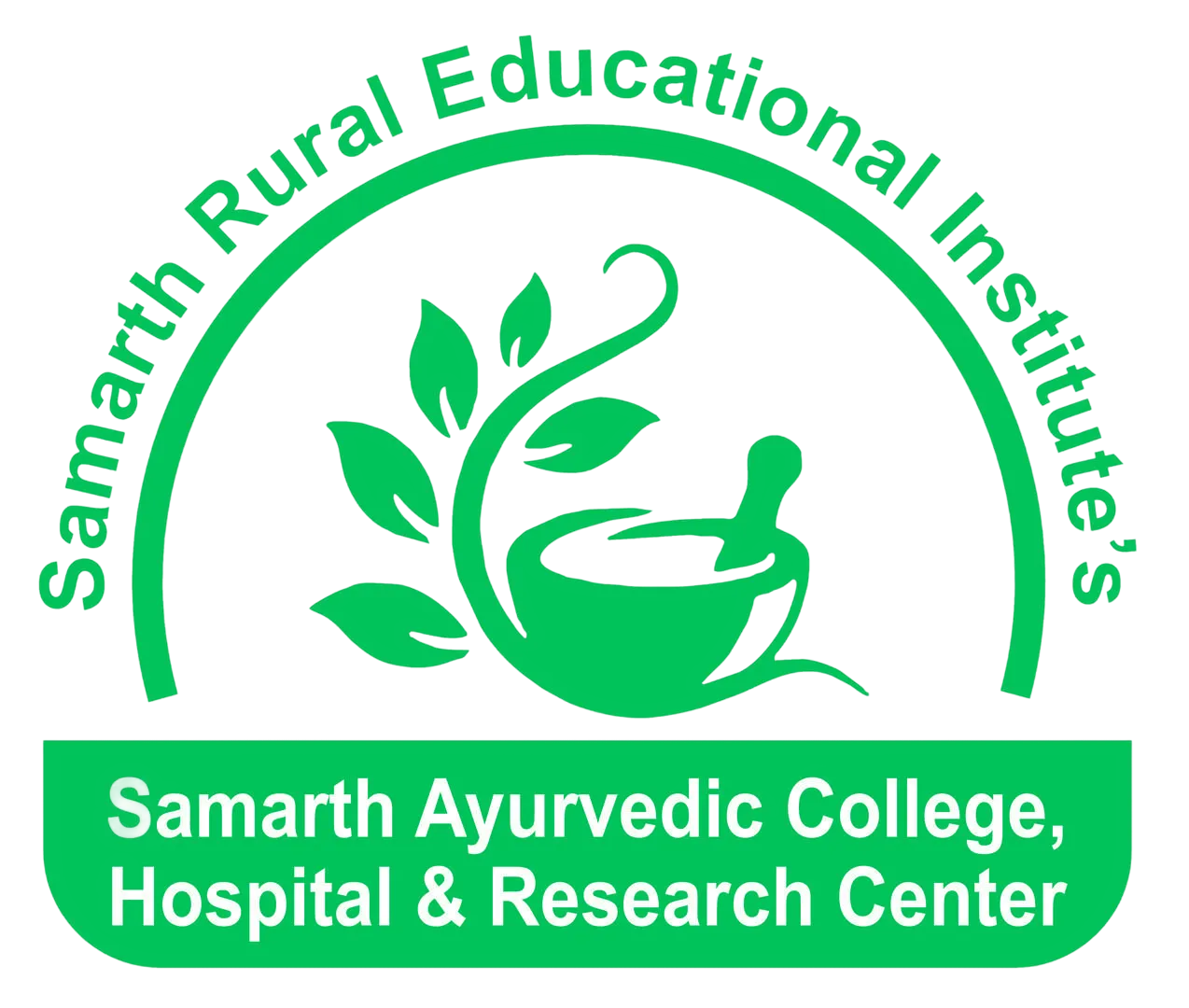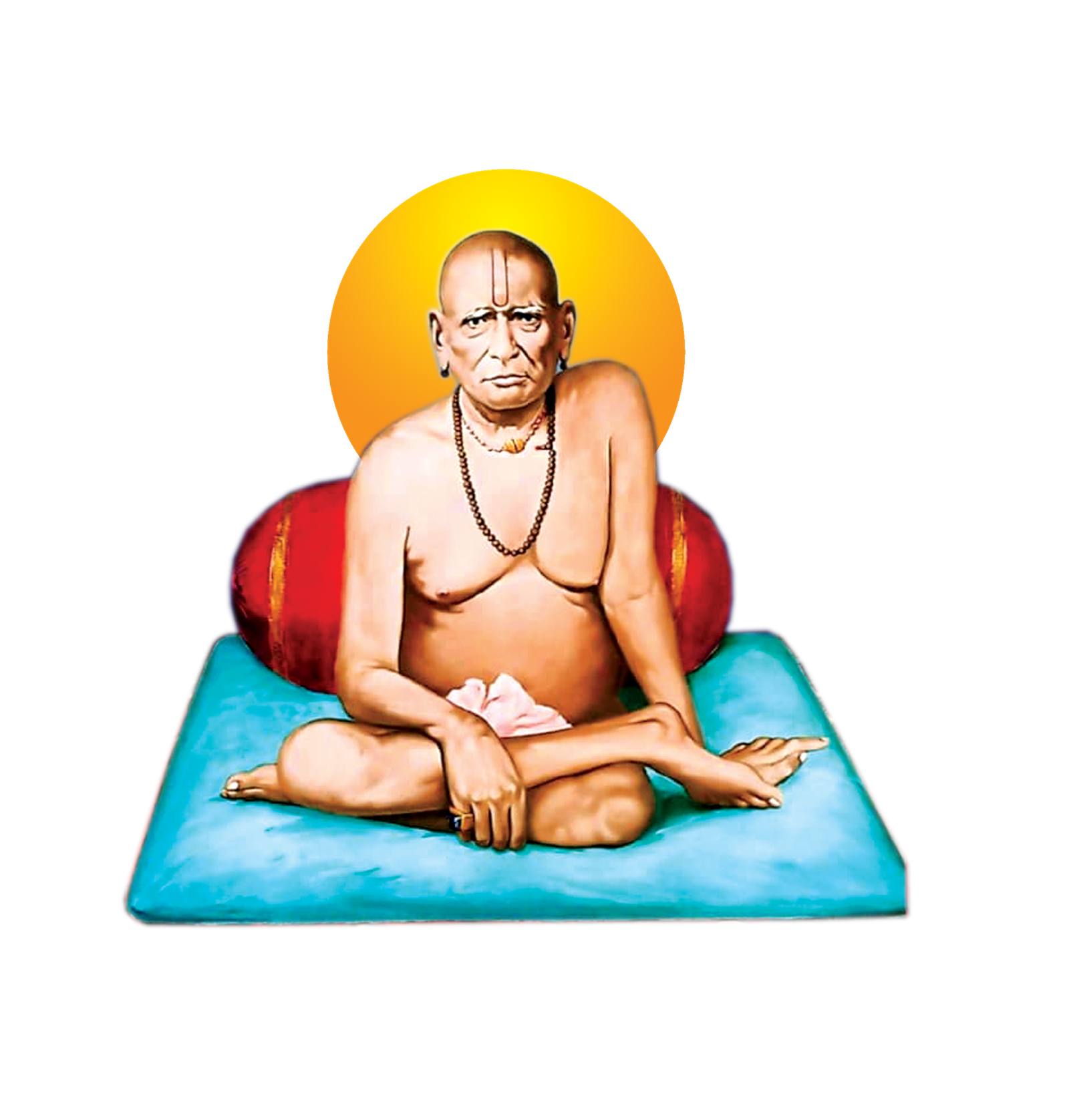Admission enquiry form submitted successful
To join whatsapp group click below button

Samarth Rural Educational Institute’s
Bangarwadi, Tal. Junnar, Dist-Pune. 412410
Approved by NCISM, New Delhi, Govt. of India Affiliated to MUHS, Nashik

The meaning of Ayurveda in Sanskrit is Knowledge of Longevity Ayurvedic, an alternative medicine discipline, includes the use of herbal medicines, mineral supplementation, Surgical techniques, application of oil by massages. The main of focus of Ayurveda is healing the main cause of illness, prevention of disease, treating poor digestion and overcoming weak immune system. Keeping in mind the importance of Ayurveda, its usefulness and practices, Samarth Rural Educational. Few endangered herbal species are seen here. In our pharmacy we manufacture variety of classical Ayurvedic preparations. The college library has ample space. It has a huge reading hall & a well-furnished section containing more than 5,000 volumes on Ayurvedic and allied medicines. Library subscribes to imperative scientific periodicals.
Ayurveda, the "Science of Life," is one of the world's oldest systems of medicine, with roots tracing back over 5,000 years to the Vedic civilization of ancient India. Derived from the Sanskrit words "Ayus" (life) and "Veda" (knowledge), Ayurveda is more than a medical system—it is a comprehensive approach to health that emphasizes balance between body, mind, and spirit.

The origins of Ayurveda are found in the Vedas, especially the Atharva Veda, where early references to healing practices and herbal knowledge are recorded. Over time, this knowledge was systematized by ancient sages. The most revered texts in Ayurvedic literature are the Charaka Samhita, Sushruta Samhita, and Ashtanga Hridaya, written between 1000 BCE and 500 CE. Charaka is considered the father of internal medicine, while Sushruta is hailed as the pioneer of surgery.
Ayurveda flourished during India’s classical period and was integrated into daily life, education, and royal healthcare. Universities like Takshashila and Nalanda offered Ayurvedic training to students from across Asia. With the arrival of foreign invasions and colonial rule, traditional systems like Ayurveda saw a decline but were preserved by dedicated practitioners and scholars.
The modern revival of Ayurveda began in the 20th century, fueled by nationalist movements, academic institutions, and global interest in holistic health. Today, Ayurveda is officially recognized by the Government of India under the Ministry of AYUSH and is practiced widely both in India and abroad.
With its emphasis on prevention, natural healing, and personalized treatment, Ayurveda remains a timeless health science that harmonizes ancient wisdom with contemporary wellness needs.
The modern revival of Ayurveda began in the 20th century, fueled by nationalist movements, academic institutions, and global interest in holistic health. Today, Ayurveda is officially recognized by the Government of India under the Ministry of AYUSH and is practiced widely both in India and abroad.
With its emphasis on prevention, natural healing, and personalized treatment, Ayurveda remains a timeless health science that harmonizes ancient wisdom with contemporary wellness needs.
To be a center of excellence in Ayurvedic education, healthcare, and research, committed to preserving the ancient wisdom of Ayurveda while integrating modern scientific advancements, thereby nurturing competent Ayurvedic professionals and delivering holistic and ethical healthcare to society.
To impart quality Ayurvedic education that blends classical Ayurvedic principles with modern scientific knowledge, fostering competent, ethical, and compassionate professionals.
To provide holistic, evidence-based, and affordable Ayurvedic healthcare services to diverse sections of society, promoting wellness and disease prevention.
To preserve, promote, and revitalize traditional Ayurvedic knowledge systems through academic excellence, clinical practice, and community engagement.
To foster a culture of innovative and interdisciplinary research in Ayurveda that bridges traditional wisdom with modern science for improved health outcomes.
To nurture socially responsible graduates equipped with skills in patient care, research, and lifelong learning, committed to the sustainable development of Ayurveda.
To collaborate with national and international institutions for knowledge exchange, capacity building, and advancement of Ayurvedic education and healthcare.

It is with great pride and honor that I welcome you to Samarth Ayurvedic College and Research Centre, Belhe—a dedicated institution established in the year 2025 with a vision to impart excellence in Ayurvedic education, clinical services, and research. Situated in the serene and culturally rich region of Belhe, Taluka Junnar, Dist. Pune, our college is committed to preserving the time-tested knowledge of Ayurveda while integrating modern scientific advancements to serve the healthcare needs of society.
Dr. Londhe Sanjay Laxman
Principal